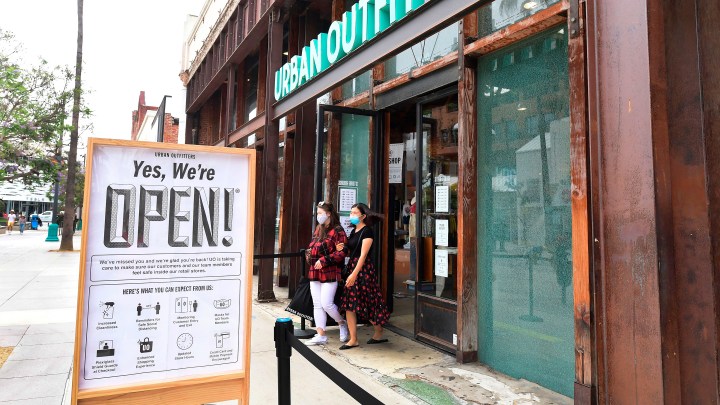
Retailers go “conservative”

If you read through recent transcripts of earnings calls from retailers, you’ll notice one word coming up a lot: “conservative.” Conservative in the business, not political, sense.
“We’re going to be conservative on inventory.” — Abercrombie & Fitch executive
“We will continue to plan our businesses conservatively.” — Urban Outfitters executive
“I think everybody’s taking a pretty conservative approach from an inventory standpoint.” — Dick’s Sporting Goods executive
Going into the fall and the holidays, retailers are being cautious about what they buy.
They’re trying to avoid a repeat of this spring. When the pandemic hit, sales plummeted, and retailers had a ton of inventory left over that they paid for but couldn’t sell. They had to offer steep discounts to get rid of it.
Craig Rowley, a senior client partner at consulting firm Korn Ferry, says when you do that, “you can lose all the profits you’ve gained through the whole season.”
This time around, with all the uncertainty, retailers are just buying a lot less. Sonia Lapinsky, managing director at AlixPartners, said it is a risky bet because if retailers are wrong, they could miss out on potential sales.
“This is their peak selling season, and given such a year of turmoil that we’ve had, it’s really risky for them to run out of stock and just miss that top line,” Lapinsky said.
Lapinsky said some shoppers will likely be disappointed this year — and find something that they want is sold out. There’s no historical precedent here: Retailers can’t just look back at last year’s sales and know how many winter coats or patio heaters or sleds to order. We’re in a new reality. So they’ve been making a lot of guesses.
“You know, what are going to be the hot items? What are going to be the things that consumers really want? And likely, [retailers are] just not going to have the right bets in all cases,” Lapinsky said.
There’s a lot happening in the world. Through it all, Marketplace is here for you.
You rely on Marketplace to break down the world’s events and tell you how it affects you in a fact-based, approachable way. We rely on your financial support to keep making that possible.
Your donation today powers the independent journalism that you rely on. For just $5/month, you can help sustain Marketplace so we can keep reporting on the things that matter to you.












